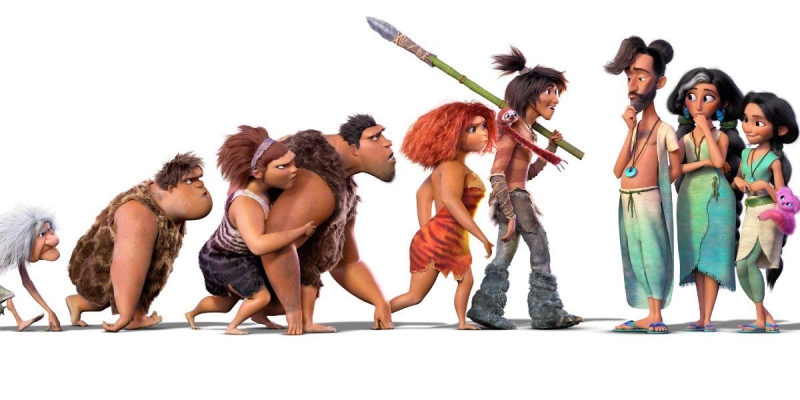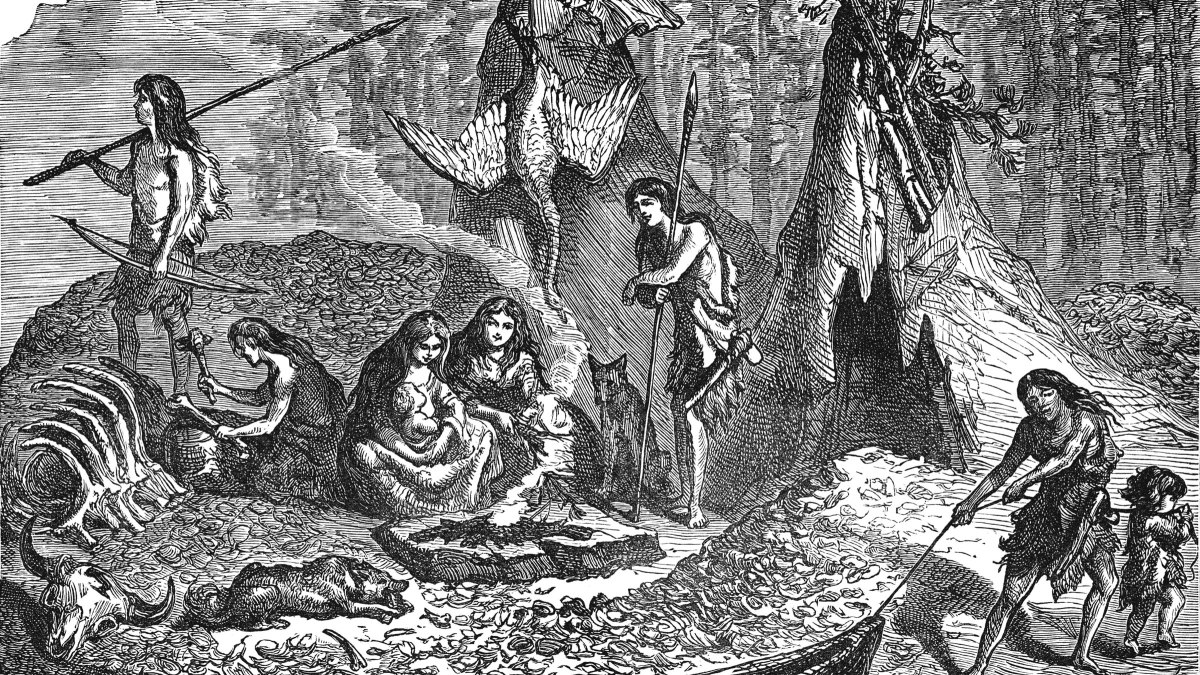A hypothesis about the origin of some female psychological traits
One of the traits that women seem generally willing to acknowledge as their own is a greater affinity for “inclusivity” and the related “equity.” In other words, compared to the average man, the average woman seems to have a stronger preference for a society in which meritocratic competition and rewards, and the resulting inequalities, are minimized. To the extent that this is so, women (compared to men) would therefore tend to prefer flatter, more egalitarian and less hierarchical social groupings—as has often been observed.
Meritocratic competition and hierarchical ordering are among the pillars of Western civilization, so it should be concerning if these are now being weakened by the cultural and political ascendancy of women. However, this brief essay is not (mainly) a judgment of the fitness of this feminine trait-set—it’s a speculation about its origins.
Has anyone done a conclusive study of why women are relatively inclined towards inclusivity/equity and against competition, meritocracy and hierarchy? If so, I’m unaware of it. Since human traits typically are rooted in the prehistoric past, I’m not sure a conclusive study of such a thing is even possible.
In any case, let us assume that these female biases do have primordial roots. What could those roots be?
As I’ve suggested elsewhere, and I guess is the obvious, default explanation, wanting to promote inclusivity/equity could have originated and persisted as a maternal instinct. This instinct would have worked to inhibit the otherwise inevitable rivalries and battles among a mother’s children, thus perhaps increasing their summed chances of surviving to adulthood and reproducing.
Is this “maternal-origin hypothesis” the end of the story? Or can other aspects of prehistoric life also account for the egalitarianism of the modern female mindset?
The primitive social structure in which H. sapiens is thought to have lived the longest—by far—was the extended family-based band that dominated the Paleolithic (“hunter-gatherer”) period. This basic mode of existence was practiced by humans, and perhaps also by their hominin ancestors, for millions of years, whereas more advanced social forms have been shaping us for only the last 10,000 years or so, i.e., the period following the Neolithic revolution.
From a modern perspective, one of the more striking features of the typical Paleolithic social grouping—which still can be observed in various remote parts of the world—is its lack of what we would call private property, a strong share-and-share-alike ethic, and a simple, non-hierarchical, “flat” organization. The 1980 South African film, The Gods Must be Crazy, did a decent job of depicting one such group (of Kalahari Bushmen) and the possessiveness and envy that threatened their harmony when they discovered an unusual and valuable object (a Coca-Cola bottle, dropped from a passing airplane).

The implication of the story, and indeed of standard anthropological descriptions of such bands, is that egalitarianism is and was necessary to keep these groups together—and keeping these groups together presumably conferred some evolutionary advantage by improving the survival chances and overall Darwinian fitness of their constituent individuals.
As Francis Fukuyama has put it in The Origins of Political Order:
Within a band-level local group, there is nothing resembling modern economic exchange and, indeed, nothing resembling modern individualism . . . Both hunting and gathering are done on a group basis by families or groups of families. Hunting in particular leads to sharing, since there is no technology for storing meat, and hunted animals must be consumed immediately . . . Many of the moral rules in this type of society are not directed at individuals who steal other people’s property but rather against those who refuse to share food and other necessities. Under conditions of perpetual scarcity, the failure to share can often affect the group’s prospects for survival. Band-level societies are highly egalitarian . . . within the band, there is relatively little differentiation between families, no permanent leadership, and no hierarchy. [my italics]
That this “paleo mindset” corresponds to key aspects of the modern female mindset points to the possibility that the one helped seed the other—in other words, that the relative female preference for inclusivity and equity in modern times originated not only in maternity but also in the social organization that dominated during the Paleolithic.
As for men, it seems likely that with the Neolithic revolution and the rise of towns, cities, private property, hierarchical government, stratified societies, meritocratic competition for wealth and status, and so on, their mindset was reshaped for this more structured and competitive environment. (This, incidentally, would have given Neolithic men a huge edge over their more peaceful, less competition-minded hunter-gatherer counterparts—an edge that is still painfully evident wherever modern and paleo-type peoples are in contact.)

The female mindset would not have been reshaped to the same extent by the Neolithic revolution if, as I suspect, this revolution brought much less change to women’s lives and roles. Women were still principally concerned with raising children, and in that context their relative preferences for inclusivity and equity, and aversions to competition and hierarchy, would have remained adaptive. Women’s roles in farming also might not have represented a big departure from their gathering lifestyle of paleo days. And although female sexual competition would have made more and more sense in a world where men’s status began to vary greatly, it’s unclear that women—often treated as patriarchal property before marriage in premodern times—had much freedom to engage in such competition until relatively recently. Certainly the competitions for wealth, status, and power that the Neolithic revolution and town/city life introduced would have been almost entirely male pursuits.
Of course, the trait differences resulting from these distinct roles and selection pressures would not have been absolute. Men and women differ genetically by only a single chromosome among 23 pairs of them, and the outcome of that tiny genetic difference is mediated by the environment as well as by factors such as sex hormones, whose doses during development can vary considerably. Just as some women are on the mannish side of the distribution of looks, some would have been on the mannish side of the distributions of psychological traits.
In the same way, or through other mechanisms of atavism, some men even in modern societies would continue to be very “paleo” and egalitarian in their thinking. It’s tempting to speculate further that this reversion, with its associated conviction that simpler times were better times, underlies some relatively old religions and political movements, including Christianity and socialism*—which, though they were invented by men, tend now to be favored more by women.
In any case, to sum up the main idea here: Key feminine psychological traits favoring inclusivity and equity and opposing hierarchy—traits that seem especially influential now as drivers of social change in the era of female empowerment—may have had their origins in the band-level social organization that dominated the Paleolithic period, not just in maternity per se.
I’ll grant that I’m not a professional anthropologist, and my idea here is not particularly complicated or sophisticated. I’m sure there’s a lot more to be said about the origins of sex-specific psychological traits. But my idea seems worth considering—indeed I think anthropologists would have suggested and explored it already, if their feminized, wokeified profession hadn’t effectively suppressed this and many other areas of inquiry.
Incidentally, my hypothesis itself suggests why this suppression is occurring. If women’s instincts on issues relating to inclusivity, equity, and hierarchy are instincts adapted for maternity and a primordial, long-outmoded social structure, then in modern societies these instincts are probably maladaptive when expressed in the public policy realm, however suited they may still be for family life and the raising of children. Even as a hypothesis, this is not a view that feminists can ever tolerate.
*Marx considered paleolithic bands the original communist societies.
* * *
